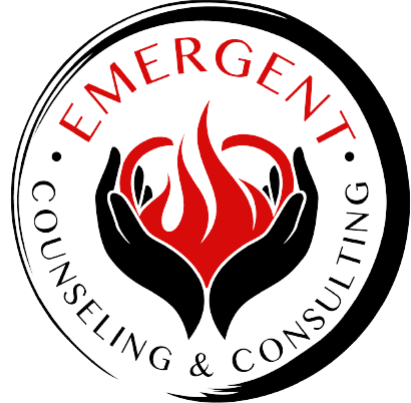The holidays are slowly coming to an end, and I find myself sitting amidst a sea of discarded wrapping paper, half-eaten leftovers, and a to-do list that seems to have multiplied overnight. Sound familiar? If you’re feeling exhausted, overwhelmed, and a bit down now that the festive season has come to an end, you’re not alone. I’ve been there, and I want to share some self-care tips that have helped me navigate the post-holiday burnout.
Recognizing Post-Holiday Burnout
Before we dive into the solutions, let’s talk about what post-holiday burnout actually feels like. For me, it manifests as a mix of physical and emotional symptoms:
- Extreme fatigue, even after getting enough sleep
- Feeling irritable or short-tempered
- Lack of motivation to return to regular routines
- A sense of emptiness or sadness now that the excitement is over
- Difficulty concentrating or making decisions
If you’re nodding along, thinking “Yes, that’s exactly how I feel!” then you’re probably experiencing post-holiday burnout too. The good news is, there are ways to cope and get back to feeling like yourself again.
1. Give Yourself Permission to Rest
The first and most important thing I’ve learned is to give myself permission to rest. After weeks of shopping, cooking, entertaining, and socializing, our bodies and minds need time to recover. I used to feel guilty about taking time for myself after the holidays, thinking I should jump right back into my normal routine. But I’ve realized that pushing myself too hard only prolongs the burnout. Now, I intentionally schedule some downtime in the days following the holidays. This might mean:
- Sleeping in for a day or two
- Spending an afternoon reading a book or watching a favorite movie
- Taking a long, relaxing bath
- Going for a gentle walk in nature
Remember, rest is not a luxury – it’s a necessity for our mental and physical well-being.
2. Ease Back into Routines Gradually
After the chaos of the holiday season, it can be tempting to try to snap back into your normal routines immediately. I’ve made this mistake before, and it only led to more stress and overwhelm. Instead, I’ve found it helpful to ease back into my routines gradually. For example, if you’ve been staying up late and sleeping in during the holidays, try adjusting your sleep schedule by 15-30 minutes each day until you’re back to your normal times. The same goes for other routines like exercise, work schedules, and meal times. Be patient with yourself – it might take a week or two to fully readjust.
3. Declutter and Organize
I don’t know about you, but my house always feels a bit chaotic after the holidays. Gifts need to be put away, decorations need to be taken down, and somehow there’s glitter everywhere. While it might seem counterintuitive when you’re feeling burnt out, I’ve found that taking some time to declutter and organize can be incredibly therapeutic.Start small – maybe tackle one room or even just one drawer. The act of creating order in your physical space can help create a sense of calm and control in your mind as well. Plus, it’s a great way to ease back into productivity without overwhelming yourself.
4. Practice Mindfulness and Gratitude
When I’m feeling burnt out, my mind tends to race with all the things I need to do or worry about. That’s when I know it’s time to slow down and practice some mindfulness. This doesn’t have to be complicated – even just taking five minutes to sit quietly and focus on your breath can make a big difference. I also find it helpful to practice gratitude, especially after the holidays. While it’s normal to feel a bit down when the festivities are over, focusing on the things I’m grateful for helps shift my perspective. I like to write down three things I’m thankful for each day, no matter how small they might seem.
5. Nourish Your Body
After weeks of indulging in holiday treats (and trust me, I enjoy every bite!), I always feel a bit sluggish come January. That’s when I know it’s time to focus on nourishing my body with wholesome foods. I’m not talking about crash diets or extreme detoxes – those only add to the stress. Instead, I try to:
- Incorporate more fruits and vegetables into my meals
- Stay hydrated by drinking plenty of water
- Limit caffeine and alcohol, which can affect sleep and mood
- Prepare simple, home-cooked meals that are both nutritious and comforting
Remember, the goal is to feel good, not to punish yourself for holiday indulgences.
6. Move Your Body
Exercise might be the last thing you feel like doing when you’re burnt out, but I’ve found that gentle movement can work wonders for my mood and energy levels. The key is to listen to your body and not push too hard. Some of my favorite post-holiday exercises include:
- Yoga or gentle stretching
- A leisurely walk in the park
- Dancing to my favorite music in the living room
- Swimming or water aerobics
The goal is to get your body moving and those feel-good endorphins flowing, not to set any fitness records.
7. Connect with Loved Ones
After the hustle and bustle of holiday gatherings, it’s easy to retreat into solitude. While some alone time is important for recharging, I’ve found that maintaining connections with loved ones is crucial for my mental health. Reach out to a friend for a casual coffee date or a phone call. Share how you’re feeling – chances are, they might be experiencing similar post-holiday blues. Sometimes just knowing we’re not alone in our feelings can be incredibly comforting.
8. Set Realistic Goals for the New Year
The start of a new year often comes with pressure to set big resolutions and make major life changes. When I’m already feeling burnt out, this pressure can be overwhelming. Instead, I’ve learned to set small, realistic goals for myself. Maybe it’s reading one book a month, trying a new recipe each week, or dedicating 10 minutes a day to a hobby you enjoy. The key is to choose goals that energize and inspire you, not ones that feel like a burden.
9. Seek Professional Help if Needed
Finally, it’s important to recognize when post-holiday burnout might be something more serious. If you’re finding it difficult to shake feelings of sadness, anxiety, or overwhelm after several weeks, it might be time to reach out to a mental health professional. I’ve learned that asking for help is a sign of strength, not weakness. Talking to a therapist can provide valuable tools and strategies for managing stress and improving your mental well-being.
Conclusion
Remember, post-holiday burnout is a common experience, and it’s okay to not feel okay. Be patient and kind to yourself as you navigate the transition back to your regular routines. By implementing these self-care strategies, you can recover from the holiday hustle and start the new year feeling refreshed and balanced. Take it one day at a time, and remember – you’ve got this!

